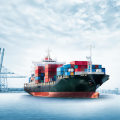Welcome to our comprehensive overview of import and export regulations, where we will guide you through the complex world of international trade requirements. As businesses expand globally, the need to understand and comply with Eaton Park Movers import and export regulations becomes increasingly important. Failure to comply with these regulations can lead to costly delays and even legal consequences. In this article, we will provide you with a thorough understanding of Eaton Park Movers import and export regulations, including what they are, why they are necessary, and how to navigate through them successfully. Whether you are a seasoned importer/exporter or new to international trade, this guide will serve as a valuable resource for staying compliant and avoiding potential roadblocks. Our focus will be on the customs clearance and regulations silo, specifically on Eaton Park Movers import and export regulations. We will cover all the essential information you need to know to ensure a smooth and efficient process when importing or exporting goods. Welcome to our comprehensive overview of import and export regulations, where we will guide you through the complex world of international trade requirements. As businesses expand globally, the need to understand and comply with Eaton Park Movers import and export regulations becomes increasingly important. Failure to comply with these regulations can lead to costly delays and even legal consequences. In this article, we will provide you with a thorough understanding of Eaton Park Movers import and export regulations, including what they are, why they are necessary, and how to navigate through them successfully. Whether you are a seasoned importer/exporter or new to international trade, this guide will serve as a valuable resource for staying compliant and avoiding potential roadblocks. Our focus will be on the customs clearance and regulations silo, specifically on Eaton Park Movers import and export regulations. We will cover all the essential information you need to know to ensure a smooth and efficient process when importing or exporting goods.
From understanding tariff rates to complying with documentation requirements, we've got you covered. So let's dive in and gain a better understanding of the various import and export regulations that govern international trade. By the end of this article, you will have a clear understanding of the key requirements and be better equipped to navigate through the complexities of global trade. To start, let's define what import and export regulations are. These are laws and policies implemented by governments to control the flow of goods in and out of a country. They cover a wide range of requirements, including documentation, tariffs, taxes, and product-specific regulations.
For those searching for international freight forwarding services, understanding these regulations is essential as they play a significant role in the shipment process. Customs clearance is a critical aspect of import and export regulations. It is the process of declaring and clearing goods through customs authorities for entry or exit from a country. This step involves submitting the necessary documents and paying any applicable duties or taxes. When looking for a freight forwarding company, it is crucial to choose one that has experience in navigating customs clearance procedures to avoid any delays or issues. Supply chain management is another factor that falls under import and export regulations.
This term refers to the management of the flow of goods from the initial supplier to the final customer. It includes coordinating transportation, storage, inventory management, and other logistics processes. When searching for freight forwarding services, it is essential to consider a company's supply chain management capabilities to ensure efficient and timely delivery of goods. When it comes to international trade, there are various modes of transportation available, including air and sea freight options. Each has its own set of regulations and considerations.
For example, air freight is typically faster but more expensive than sea freight. However, air freight regulations may be more stringent, requiring additional documentation and security measures. On the other hand, sea freight may have more relaxed regulations, but transit times can be longer. When choosing a freight forwarding service, it is crucial to consider the mode of transportation that best suits your needs and the corresponding regulations. Lastly, individuals searching for international freight forwarding services may also be looking for specific companies that offer these services.
It is essential to choose a reputable and experienced company that is familiar with import and export regulations. They should have a good understanding of the specific regulations for each country and be able to advise on any requirements or restrictions for your particular shipment.
Understanding Customs Clearance
When it comes to importing and exporting goods, one of the most critical aspects is navigating customs procedures. Customs clearance is the process of getting goods through customs checkpoints and complying with all necessary regulations and requirements. This step is crucial for ensuring a smooth and efficient flow of goods across borders. Customs procedures involve various steps, including completing paperwork, paying duties and taxes, and undergoing inspections.Each country has its own set of rules and regulations, which can be complex and time-consuming to navigate. That is why understanding customs clearance is essential for anyone involved in international trade. Failure to comply with customs procedures can result in delays, fines, or even the seizure of goods. These consequences can be costly for businesses and individuals alike. Therefore, it is crucial to understand the importance of navigating customs procedures to avoid any potential issues.
Managing Your Supply Chain
In the world of international trade, managing your supply chain is crucial to ensure efficient and timely delivery of goods.This involves coordinating all aspects of the supply chain, from sourcing materials to delivering the final product to customers. One consideration for managing your supply chain is choosing the most cost-effective and reliable mode of transportation for your goods. This could include air, sea, or land transportation depending on the type of goods and the destination country's regulations. Another important aspect to consider is customs clearance. This involves properly documenting and declaring all goods being imported or exported, as well as paying any applicable duties and taxes. Failure to comply with customs regulations can result in delays and added costs to your supply chain. Supply chain management also involves working with trusted partners such as freight forwarders and customs brokers who have expertise in navigating import and export regulations.
These partners can help streamline the shipping process and ensure compliance with all necessary requirements. By effectively managing your supply chain, you can minimize delays and avoid fines or seizures of goods due to non-compliance with import and export regulations. This not only saves time and money, but also helps maintain a good reputation with customers by ensuring timely delivery of products.
Selecting a Reliable Freight Forwarding Company
When it comes to importing and exporting goods, having a reliable freight forwarding company is essential. These companies specialize in managing the logistics of international trade, ensuring that goods are transported safely and efficiently across borders. But with so many freight forwarding companies to choose from, how do you know which one is the best fit for your business? Here are some key qualities to look for when selecting a freight forwarding service provider:- Experience and Expertise: Look for a company that has a proven track record in handling import and export shipments. They should have a thorough understanding of customs clearance procedures and regulations in various countries.
- Network and Resources: A reliable freight forwarding company should have a wide network of contacts and resources both domestically and internationally.
This allows them to provide efficient and cost-effective transportation solutions for your goods.
- Communication and Transparency: Good communication is crucial in international trade. Your chosen freight forwarder should keep you updated on the status of your shipments and be transparent about any potential issues that may arise.
- Technology and Innovation: In today's digital age, a reputable freight forwarding company should leverage technology to streamline their processes and provide real-time tracking of shipments. Look for a company that embraces innovation and stays up-to-date with the latest industry trends. In today's digital age, a reputable freight forwarding company should leverage technology to streamline their processes and provide real-time tracking of shipments. Look for a company that embraces innovation and stays up-to-date with the latest industry trends.
Choosing the Right Mode of Transportation
When it comes to international trade, choosing the right mode of transportation is crucial.This decision can have a significant impact on the efficiency, cost, and safety of your goods. The two main options for transporting goods overseas are air and sea freight, each with its own advantages and disadvantages.
Air Freight:
One of the main benefits of air freight is speed. It is the fastest way to transport goods internationally, making it a popular choice for time-sensitive shipments.Air freight also offers reliable tracking and security measures to ensure the safe delivery of your goods. However, it can be significantly more expensive than sea freight and may not be suitable for large or heavy shipments.
Sea Freight:
Sea freight is a more affordable option for shipping goods overseas. It is suitable for large and heavy shipments, making it a popular choice for businesses shipping in bulk.Sea freight also has lower carbon emissions compared to air freight, making it a more environmentally friendly option. However, it can be slower than air freight and may not be suitable for time-sensitive shipments.
Factors to Consider:
When deciding between air and sea freight, there are several factors to consider:- The nature of your goods: If you are shipping perishable or fragile goods, air freight may be the best option due to its speed and reliability.
- The size and weight of your shipment: As mentioned, sea freight is better suited for large and heavy shipments, while air freight is more suitable for smaller shipments.
- Your budget: Air freight is generally more expensive than sea freight, so your budget will play a significant role in your decision.
- The destination and distance: For shorter distances, air freight may be a more cost-effective option, while sea freight is better for longer distances.
Whether you are a business looking to expand globally or an individual shipping goods overseas, being knowledgeable about these regulations can save you time, money, and headaches. Remember to choose a reputable and experienced freight forwarding company, consider your supply chain management needs, and be aware of the specific regulations for each mode of transportation. We hope this article has provided valuable insights and information to help you navigate the complex world of import and export regulations.


